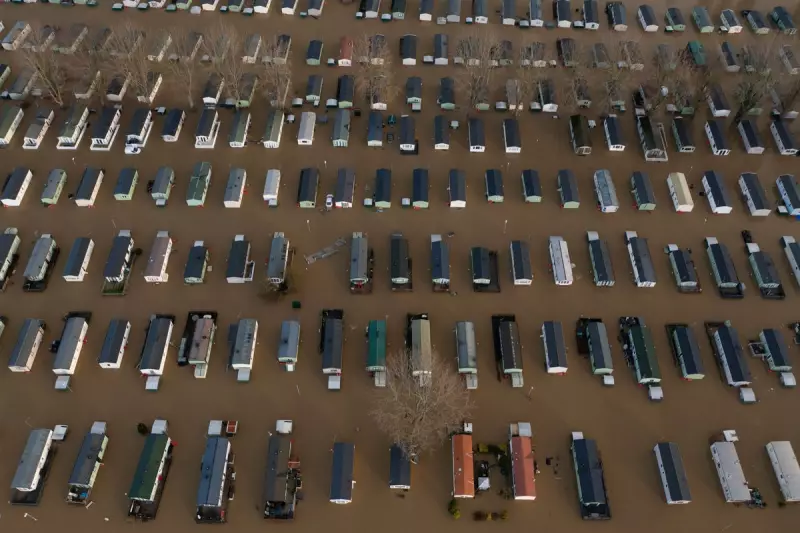
A silent crisis is unfolding across Britain's housing market as thousands of homeowners discover their properties are becoming virtually uninsurable due to escalating flood risks. What was once considered a manageable annual expense is now transforming into an existential threat for households in vulnerable areas.
The Rising Tide of Uninsurable Homes
Insurance providers are increasingly withdrawing coverage from properties deemed at significant flood risk, leaving homeowners facing astronomical premiums or, in worst-case scenarios, complete refusal of cover. This insurance gap threatens to create 'property blackspots' where homes become virtually unsellable and unmortgageable.
Climate Change's Direct Impact on Home Values
The accelerating frequency and severity of extreme weather events, directly linked to climate change, has fundamentally altered risk calculations for insurers. Properties that were considered safe bets a decade ago are now being reclassified as high-risk, catching many homeowners unaware and potentially trapping them in devaluing assets.
The Mortgage Timebomb
Most concerning is the intersection with mortgage requirements. Lenders universally mandate buildings insurance as a condition of mortgage approval. Without accessible insurance, homeowners cannot remortgage and potential buyers cannot secure loans, effectively freezing the property market in affected areas.
Who's Most Affected?
- Coastal communities facing sea-level rise and storm surges
- Riverside properties in floodplain areas
- Urban homes in areas with inadequate drainage infrastructure
- Properties in regions experiencing increased rainfall intensity
Government and Industry Response
While schemes like Flood Re provide a temporary safety net for some high-risk properties, concerns are growing about its long-term sustainability and whether it adequately addresses the scale of the emerging crisis. Experts warn that without coordinated action between government, insurers, and local authorities, entire communities could face economic devastation.
The situation represents a stark warning about the tangible economic consequences of climate change, hitting British homeowners where it hurts most - their financial security and their ability to protect what is typically their most valuable asset.





